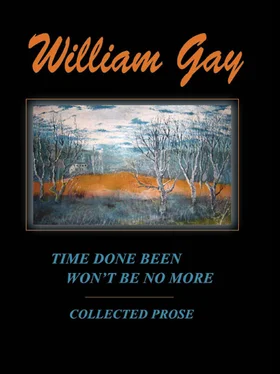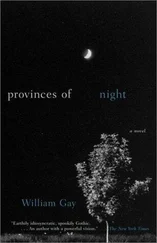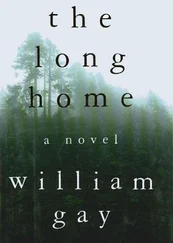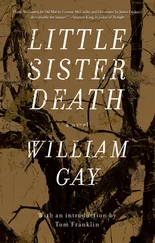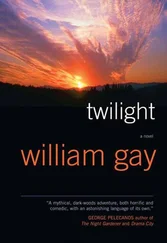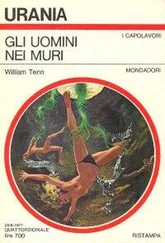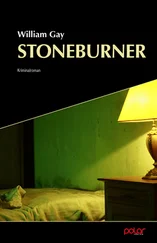When he was booked into the Loews Theater in Birmingham, Alabama, there weren’t enough seats for all the folks who wanted to sit in them. A two-week engagement extended to five, and still the place was packed. The theater manager was arrested by the fire marshal for permitting too many fans inside.
Soon Macon was playing the Loews chain from Boston to Florida and beyond. At an age when most men are contemplating retirement, Uncle Dave Macon was on the road to becoming country music’s newest superstar.
Macon was far luckier than most: The crash of 1929 sent most rural musicians back to sharecropping and coal mining, but Macon had a job on the Grand Ole Opry, and he always had a label willing to release his music.
He wrote protest songs about prohibition (Dave took it personal that it had become so hard to buy a decent drink of whiskey), about the downtrodden farmer (Eleven Cent Cotton), and about whatever peeved him at the moment always with a stoic humor that regarded the world with a sort of sardonic fatalism.
Time and Change — always Macon’s enemies — were rolling on down the line. The Opry was big business. He had grown old, beginning to sound dated to more modern ears. The Young Tucks of county music were coming aboard, and Macon regarded them with a jaundiced eye. To him, showmanship was half the music, and most of these trespassers came up wanting. They didn’t have the requisite style. You’re a pretty fair banjo picker , he told Earl Scruggs, but you’re not very funny .
By the end of the 40s, the music was changing and the audience was changing with it. Hank Williams had arrived and country-music singers were beginning to be judged as sex idols the way that movie stars were. Macon’s wife had died and he was spending lonesome nights in a Nashville hotel. Before he died in 1952, he willed one of his banjos to a young entertainer named Stringbean Akeman whom he considered his protégé, but he must have seen the time coming when clog-dancing banjo pickers would be reduced to comic relief between modern songs.
He couldn’t have known the whole of it, the arrival in Nashville of a new breed of producers like Chet Atkins and Owen Bradley and crooners like Jim Reeves who sweetened the music and diluted it until it was more palatable to audiences with an affinity for mainstream pop. Perhaps he would have harkened back to his days with the showmen in the basement of the Broadway House and found it ironic that style was still supplanting substance, veneer more than ever disguising reality.
Even banjo-playing altered. There would come a time when newgrass pickers would try to force the banjo into the realm of quantum physics. But Macon’s own playing was not as simple as it sometimes sounded. In his later days, nearing eighty, he relied mostly on a frailing or clawhammer technique, but scholars dissecting his 1920’s recordings have identified almost a score of different styles that he had mastered running from ragtime to blues and they’re still finding more. And any one of them sounds realer and truer than anything that has come along since.
HAND ME MY TRAVELING SHOES
Not long after Blind Willie McTell graduated from the school for the Blind in Macon, Georgia, he turned up in Atlanta. (There’s a theory that says he’s Blind Willie McTear, that an instructor at the school misheard McTell and wrote the name down wrong, so perhaps the mythic weight of having your name committed to some sort of legal document in that time and place made you beholden not only to the authority that signed the papers and affixed seals of legality, but to the lesser authority that served and interpreted them.) Something was beginning to happen in American music, and a lot of it was happening in Atlanta. Street musicians dependent upon coins tossed in guitar cases or passed hats were drawn there by the city’s size and relative prosperity. If you only counted the blind musicians and ignored the sighted, you’d still come up with an impressive number.
Truly there must have been giants on the earth in those days. All those blind blues singers were steady on the move, crisscrossing the South like black spores on a glass slide, setting up on street corners and opening their guitar cases, ears attuned for the clink of change, always alert for a new song they could borrow and make their own with lines from the floating debris of a thousand other blues songs. They lugged their guitars and coat-hanger harmonica racks, uncertain where they’d be when night fell on them, whose floor they’d sleep on, where the next meal was coming from and when it would get there. The corners on Decatur Street must have thronged with them; the competition for prime locations must have been fierce. Imagine the traffic jams, the fortunes a seeing-eye-dog franchise could have made. It was a harsh and provisional world McTell had come into. You had to be tough just to survive.
Dark was the night, cold was the ground. When Blind Willie Johnson turned up in Atlanta, McTell almost immediately hooked up with him. Johnson was a slide-guitar player of great technical proficiency, and he was also a Baptist minister, and between them they covered the field, both the secular and the washed in the blood.
Riley Puckett was there. He was a white guitarist (blind too, of course, and also working the streetcorners) who within a couple of years would play lead guitar with the Skillet Lickers, his innovative picking and odd bass runs helping the Skillet Lickers to sell a lot of records and making this white string band the Rolling Stones of their day. (Bootleggers rejoiced and laid on an extra shift when the Skillet Lickers came to Atlanta to record.)
A lot of things will remain mysterious about Blind Willie McTell, and not the least of them is whether or not he ever played with Puckett. But the odds are that they met. Some of the Skillet Lickers’ recordings, like Georgia Rag and Razor Ball, have the ragtimey feel of McTell songs, and there was at this time an enormous amount of cross-pollination going on in music. You are what you hear, perhaps. McTell’s own music is more Piedmont than Mississippi Delta blues. His voice is higher and more nasal than the conventional blues singer’s voice, and the music is more accessible than, say, Son House or Charley Patton. (Having recorded McTell, the archivist John Lomax initially declined to release the sessions. He had recorded McKinley Morganfield and Son House, and being more familiar with the traditional country blues sound, he complained that McTell did not sound enough like a blues singer.)
Of course, if you’re playing for an audience and you expect to get paid, the idea is to play something the audience wants to hear. A background of performing in carnivals and tent shows and the picnics that at the time were part of the African-American social scene had given McTell’s repertoire a broader sweep than most Bluesmen. Listening to his catalogue, you hear music that ranges from traditional twelve-bar blues to ragtime to sly, ribald songs that must have made him the life of the party, to songs that existed for no other reason than to allow him to do some virtuoso guitar-picking, and that hat must have come back heavy then. The conclusion that he knew what he was doing is incontestable.
McTell and Blind Willie Johnson traveled what was known as the Georgia circuit: Atlanta and Augusta, Savannah and Macon. Had they wandered south and stumbled across the fabled crossroads where a decade later Robert Johnson would deal with Satan, McTell might have bargained for his vision: He had been blind all his life and he could already play the guitar.
Still, he was luckier than most. He’d learned at the blind school in Macon not only to read words but to read music by feeling out the shape of the notes with his fingertips, in a time when even most sighted musicians learned and performed by ear. And he could take care of himself. He’d been a hard worker since his early teens, working with carnivals and traveling medicine shows and minstrel shows.
Читать дальше
